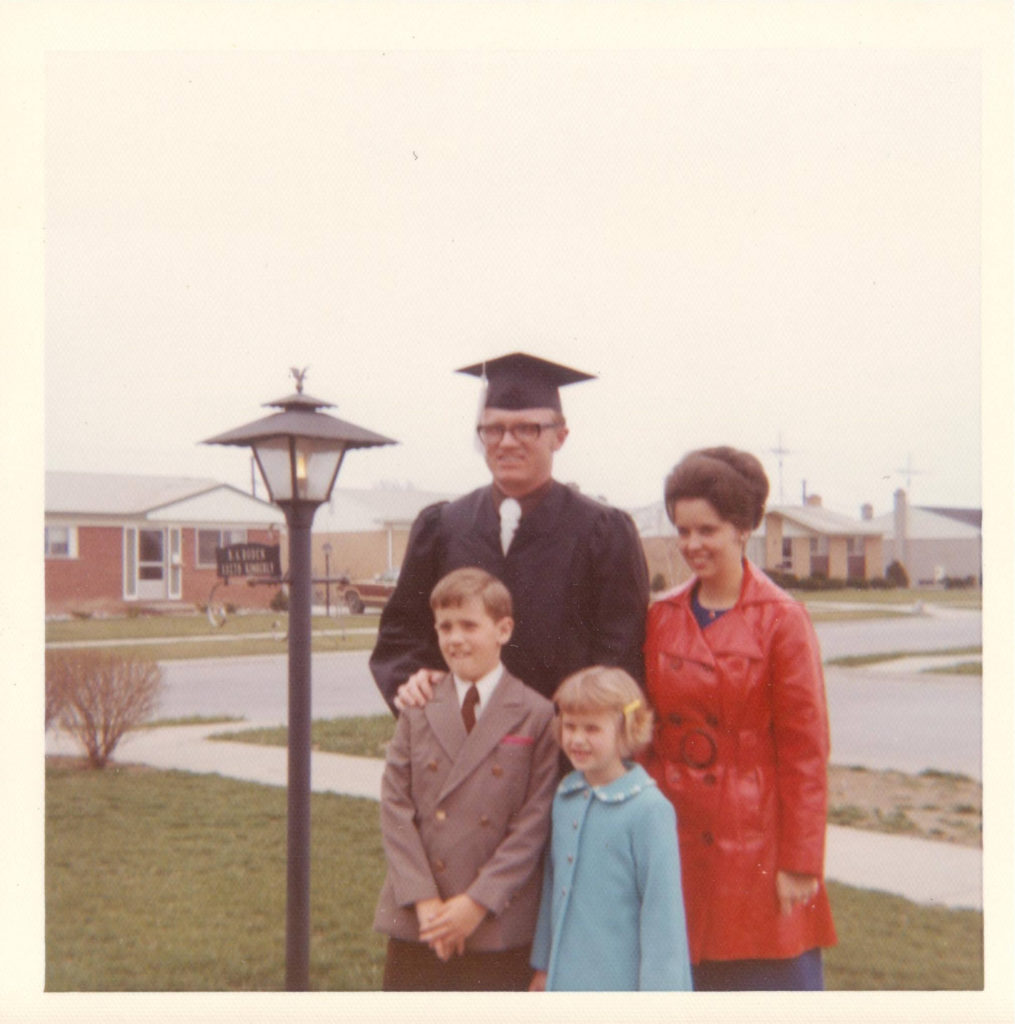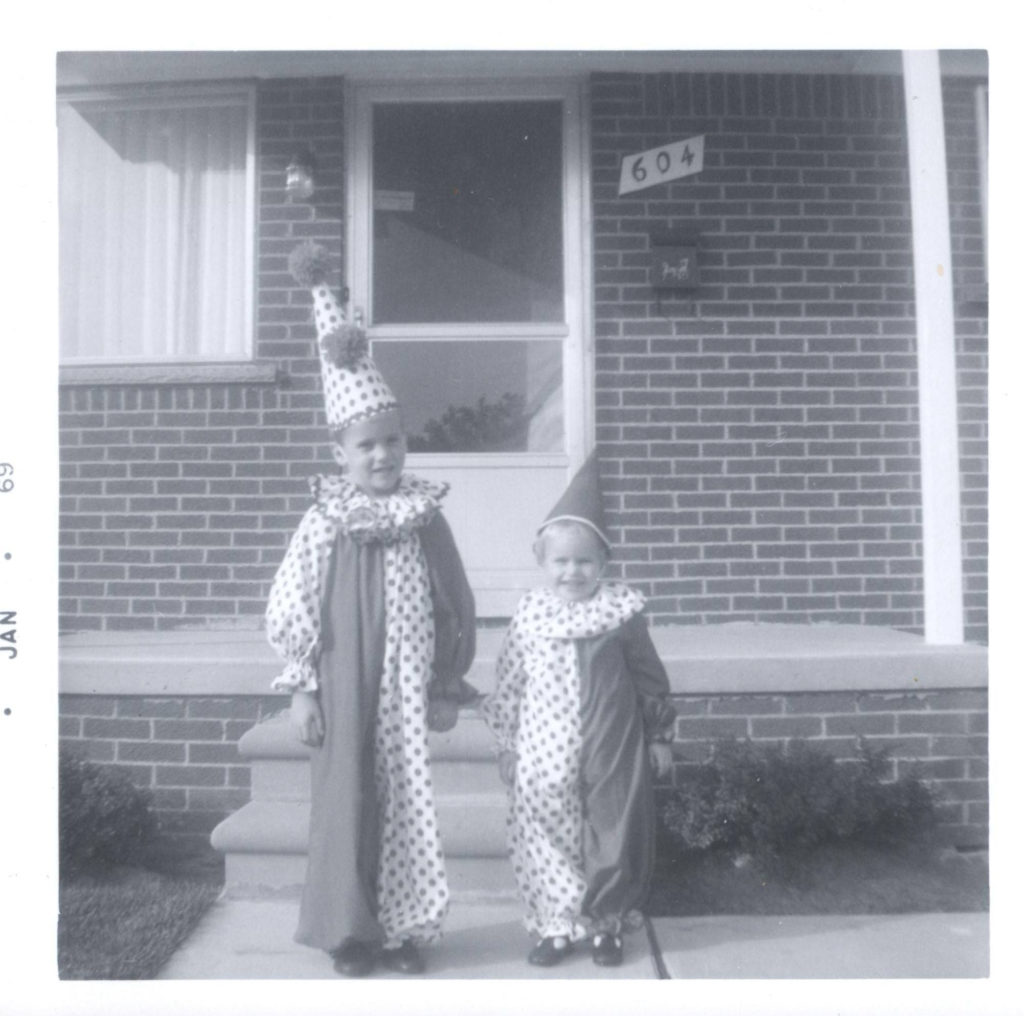FIND YOUR WAY (over and over again)
When my kids were growing up, they asked me why I became a chemist. The question grew much more intense when they found out I had to know a lot of math in order to actually be a chemist.
In my opinion Math gets a rep. It’s fun! You start off memorizing your multiplication tables, then you’re solving quadratic equations, then geometry proofs, and boom-you’re deriving wave equations. It doesn’t get much better than that, does it?
“WHEN” IS A LOT OF THE “WHY”
I’m not 100% sure what got me moving down the science path, but I believe a lot of it was the “when” of when I lived. I was born in the 60’s and grew up in the 70’s. The inventions and leaps that were made in technology throughout my “when” are unreal. Here’s a short list:
Neil Armstrong walked on the moon.
Skylab launched.
North American Rockwell started the shuttle program (my dad was there).
Catalytic converters improved the air we breathe.
Cell phones came to be.
And…this is a big one…
Computers went from being megalithic room-sized contraptions that could add and subtract to desktop units that could be programed to solve those pesky wave equations!
All this happened in my life before I was 25. That’s an incredible time and I’m lucky for my “when”.
SEEING SCIENCE CHANGE THE WORLD
I saw how science changed the world and I wanted to be a part of it. I studied chemistry in college. I added biology and physics classes to round it out. And more math (naturally). None of it was easy. It was really, really hard. But I loved the challenge.
After college, I went to graduate school and I was lucky. I landed a brilliant advisor and a good research project. After grad school, I had a post-doctoral stint with a leading researcher and saw more challenges and higher expectations. These challenges kept me excited, and sometimes frustrated. Every obstacle was a chance to flex new muscles, meet people, learn things and better myself.
PRACTICE MAKES PASSION MAKES PURPOSE
From grad school, I got the opportunity to enter pharmaceutical research. I learned about the business I’m in right now. In that first job, I learned how to take a small scale, totally impractical bench-top synthesis, and turn it into a process we could run in swimming pool sized reactors. For the first time, all that stuff I learned had a practical purpose. The team I was on was taking molecules discovered in a research lab and producing them for clinical trials. We were actually making something that could make people’s lives better. We could alleviate pain and suffering. We could improve quantity or quality of life, and sometimes both.
EVOLVING PASSION
I was able to take that experience and learn more about the business of pharmaceuticals. It’s a highly regulated industry and it’s the responsibility of the pharmaceutical developer to prove to all those agencies that the products we make are safe for the patient and that they actually do the things we claim they can do. Those products have to be made safely, without contaminating the environment. We have to control the side reactions that lead to impurities that could hurt the patient which means we have to know every possible aspect of the chemistry. We have to be able to detect those impurities and quantify them accurately. We even have to be pro-active in what we do in case something arises later. I was blessed to work with some of the best regulatory and quality people in this business.
And yet all that work doesn’t mean anything if you can’t produce it cost effectively. I learned about supply chains and strategic sourcing. I learned who made the raw materials needed to feed the manufacture of those products and the intricacies of buying them on a commercial scale, and making sure they arrive where they need to be, when they need to be there.
THE ONE THAT MAKES ALL THE DIFFERENCE
Finding a way to make all of that happen was my passion. Seeing a product make its way through the clinical development process to commercialization may seem trivial, but it’s a very complicated path filled with challenges and pitfalls. I’ve seen so many projects come down that path. The majority of them fail for any number of reasons. But getting that ONE that makes it through, that feeds the passion of a lifetime. Knowing you helped someone.
That’s my passion and purpose. That’s why I became a chemist.
Despite all the math.


